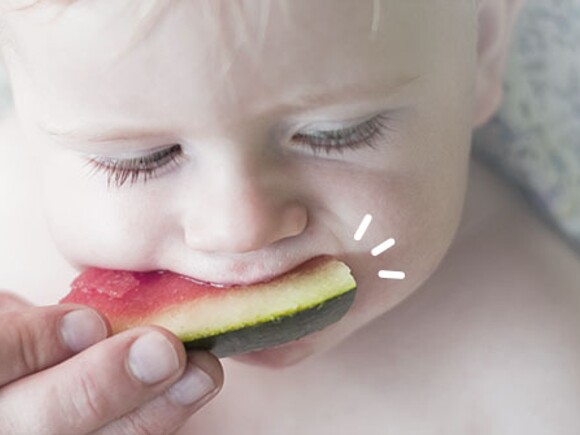As a child grows up, he begins to form his identity and assert himself as an individual with his own likes and desires. He may seem to listen to you a few times, but in the end, he would like to show you that he can decide for himself. For a parent like you, it is not easy to know when you should give in to what he wants, ‘di ba?
The development of your child’s independence
At around 8 months, your precious little one realizes that he is a separate person from you, his mother. This causes him to worry. He begins to cry when you leave him or get anxious when you introduce him to new people. This is known as Separation Anxiety or “Pangingilala”.
Then, baby slowly starts to become aware of the concept of otherness. At around 18 months, your child is able to recognize himself in the mirror and see himself as an individual person. This is an important stage because he starts to form his sense of “self”. This is also the start of his “No!” phase. He says “no” to everything you ask him to do… whether it is taking a bath (which he usually loves to do!), putting his socks on, or eating his mashed potatoes! Don’t worry, mommy, he is just trying to assert his authority as an individual, and he is not simply trying to be pasaway. Your child has realized that he is an individual person from you and he wants to let you know that. Up until this point, it has been you who has decided for him on almost everything, but now he has his own opinion. Maybe this is only a glimpse of the teenage years that are yet to come!
How to react to your child’s newly found independence
This assertion of authority shows that your kid is developing normally. It doesn’t mean that you should give your child everything he wants all the time, but at least man lamang, you should listen to what he has to say. If he refuses to follow you on something, you can always give him a choice to make him feel like he is in control. If he refuses to let you help him get dressed, you can ask him “Do you want me to help you get dressed now or in two minutes?” You can also choose clothes that are easy for him to put on… clothes that have no buttons or zippers and shoes that are easy to slip into. Tasks like dressing up may take a bit of time in the beginning, but later on, teaching him to be independent will save a lot of time and do him a lot of good.
You should always remain consistent and be firm with decisions. You cannot allow him to do something one day, and forbid him to do it the very next day. It is up to you as parents to make the rules and apply them. Some rules are set like taking a bath everyday, but some rules can be more flexible. If your child wants to dress up by himself, let him…as long as he wears his raincoat whenever it is raining outside, for example. If your child wants to stay on the swing for five more minutes, allow him that…as long as he knows that Mom will stay next to him during those five minutes and after that, it is really time to go.
Compromising over food like veggies
Every time you introduce your toddler to new food, you get the same answer: “No, I don’t like!” or “Ayaw!” Between 2 and 10 years old, around 75% of children have this kind of reaction known as food neophobia.
It is natural for children to only want to eat what they like, like the usual chicken and spaghetti, but it is important that they eat a balanced diet. Forcing your child to eat something will not solve anything, the more your child will dislike it! You can think of creative ways to make him eat something. If he refuses to eat meat and veggies, you can make a baked dish with meat or vegetables in it. You can even form the meat and veggies into the shape of his favorite cartoon character.
It is also important that you, as a parent, set an example. Show your child that you love eating alugbati or ampalaya. Go shopping together with your child, and then, cook the food you chose together. Your chikiting will be proud of cooking food on his own (with a little bit of your help, syempre!) and at least try to finish it to the last bite.





























